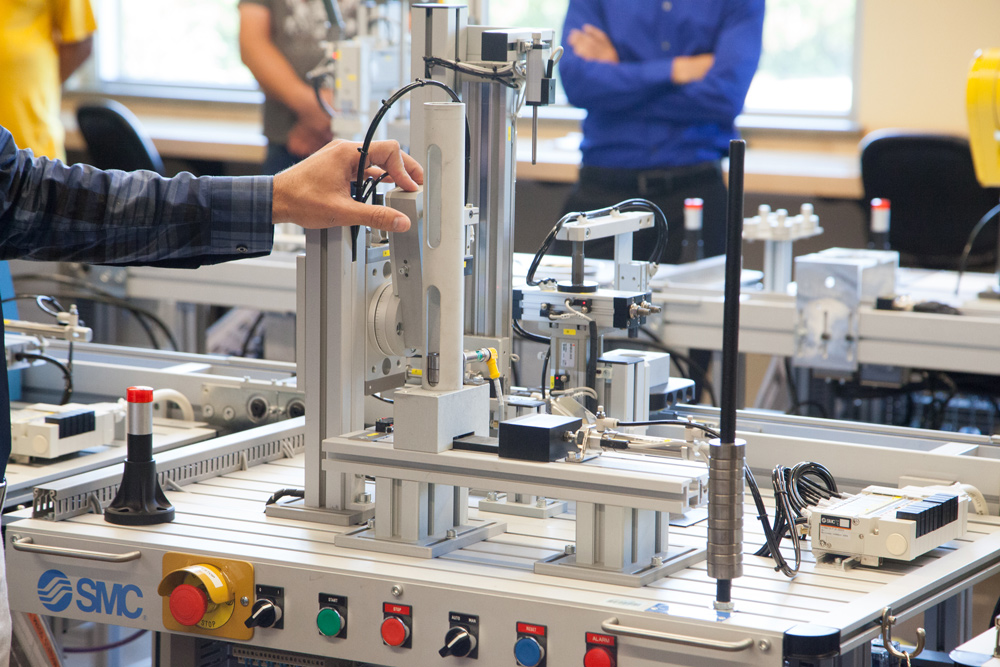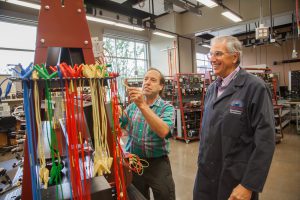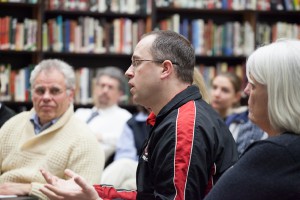A RAMP to tech jobs

Clark College’s popular mechatronics program combines electronics with mechanized processes to prepare students for jobs in today’s high-tech manufacturing.
Clark College has received a $200,000 grant from the National Science Foundation to create a new Rural Access Mechatronics Program (RAMP) that will help students in rural areas become skilled technicians in the high-demand field of advanced manufacturing.
“Thanks to this funding, Clark College will be able to provide greater access to our highly regarded Mechatronics program to students living anywhere in Clark’s service district,” said Clark College Dean of Workforce, Career and Technical Education Genevieve Howard. Clark’s service district includes Clark, Skamania, and Klickitat counties.
During the grant’s first year, Clark College faculty will develop a curriculum of seven “hybrid” classes that compose a Certificate of Completion in Mechatronics Fundamentals. Hybrid classes are taught partially in a face-to-face classroom, and partially online, allowing students in remote locations to attend classes without commuting long distances each day to a college campus.
Many regional employers have expressed a need for additional technicians trained in mechatronics, a discipline that focuses on the integration of mechanical and electronic components in modern manufacturing and utility environments. Employers who wrote letters in support of this project include Boeing, Insitu, NORPAC, Silicon Forest Electronics, Vancouver Energy, the Columbia River Economic Development Council, and the Southwest Washington STEM Network.
“The RAMP program is another example of how Clark College is addressing the workforce needs of advanced manufacturing businesses,” said Jeanne Bennett, CEO of the Southwest Washington Workforce Development Council, which also supports the project. “The hybrid/online program will enable more students to receive training, and this will increase our region’s pool of skilled mechatronics technicians.”
The program will begin accepting its pilot cohort of students in the fall quarter of 2017. Given Clark’s strong focus on hands-on learning, the college is currently examining potential options for bringing lab facilities to students in remote areas of its service district. These could include anything from suitcase-sized training modules to a traveling “lab” on wheels.
Clark College received this grant through the NSF’s Advanced Technical Education program, which was created to improve and expand educational programs for technicians to work in high-tech, STEM (science, technology, engineering, and mathematics) fields. The grant proposal was developed by mechatronics professors Chris Lewis and Ken Luchini with Director of Grant Development Lori Silverman and Howard.
“The RAMP grant is exciting because it validates the ability of Clark College faculty and staff to develop a grant proposal that is competitive on a national scale in an academically rigorous process,” said Howard. “Our hope is that we can replicate this hybrid model in other areas of career and technical education, potentially with further NSF assistance.”
Photos: Clark College/Jenny Shadley



